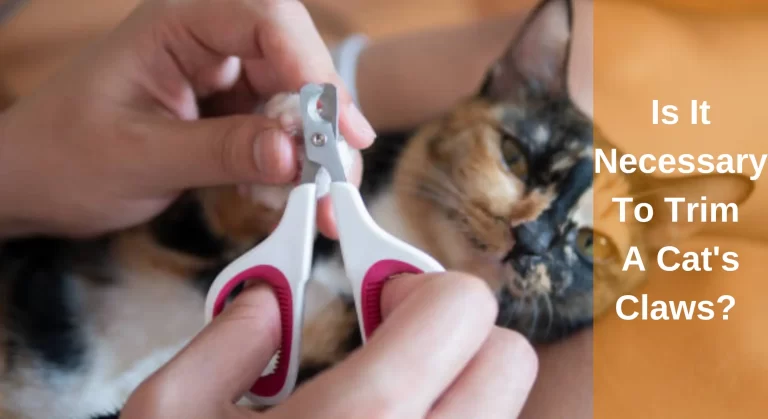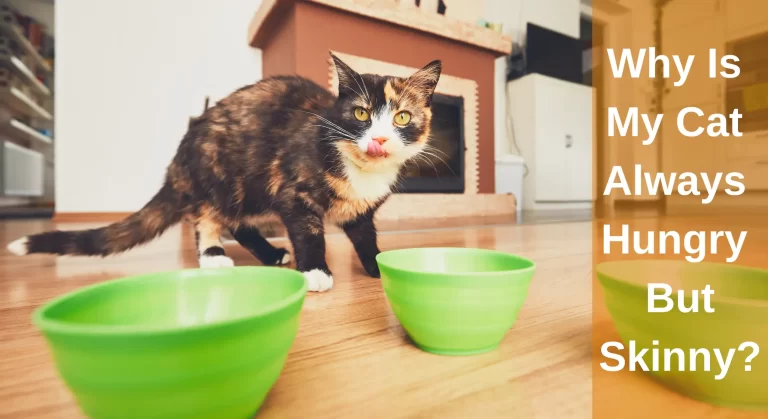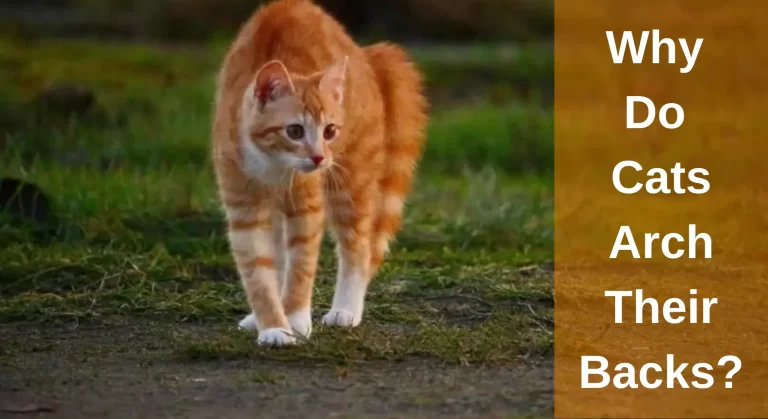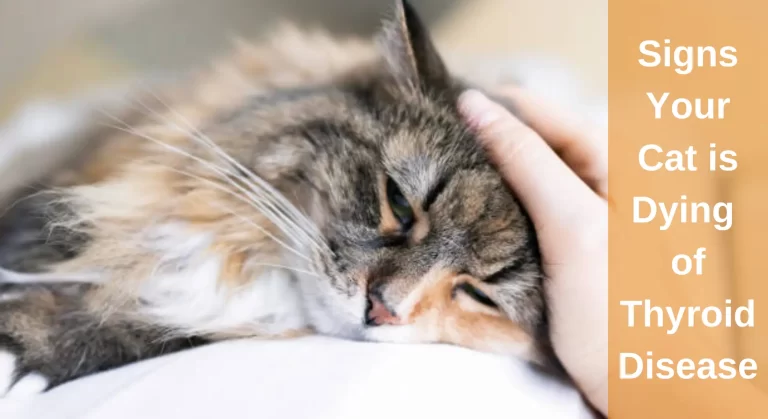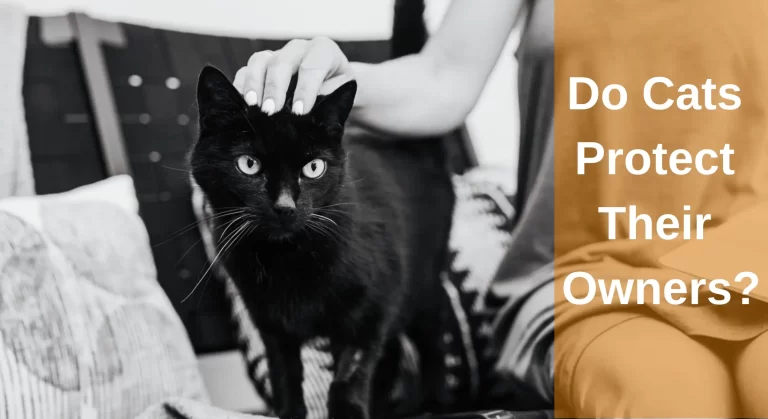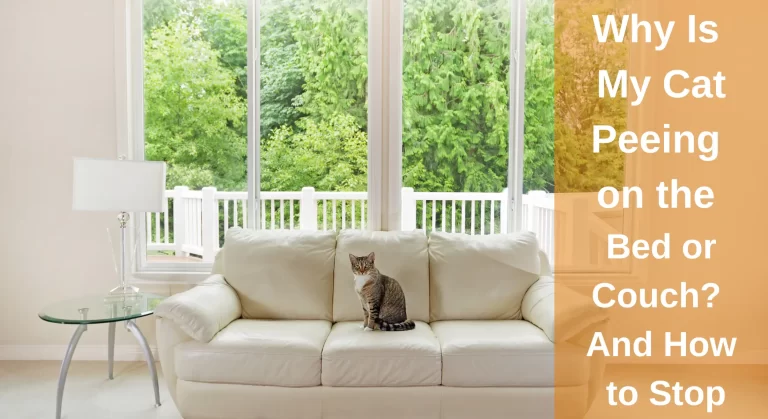Why Is My Cat Suddenly Lethargic and Weak? – Causes, Treatment, and Prevention
Cats are known for their playful and active nature. However, if your cat suddenly becomes lethargic and weak, it could be a sign of an underlying health issue. As a pet owner, it’s essential to be vigilant about your cat’s health and recognize the signs when they are not feeling well.
Sudden lethargy and weakness in cats can be caused by a variety of factors. Some common causes include illness or infection, dehydration, nutritional deficiencies, diabetes, stress or anxiety, and pain or injury.
In this article, we will discuss some of the common causes of sudden lethargy and weakness in cats, their symptoms, and potential treatments.
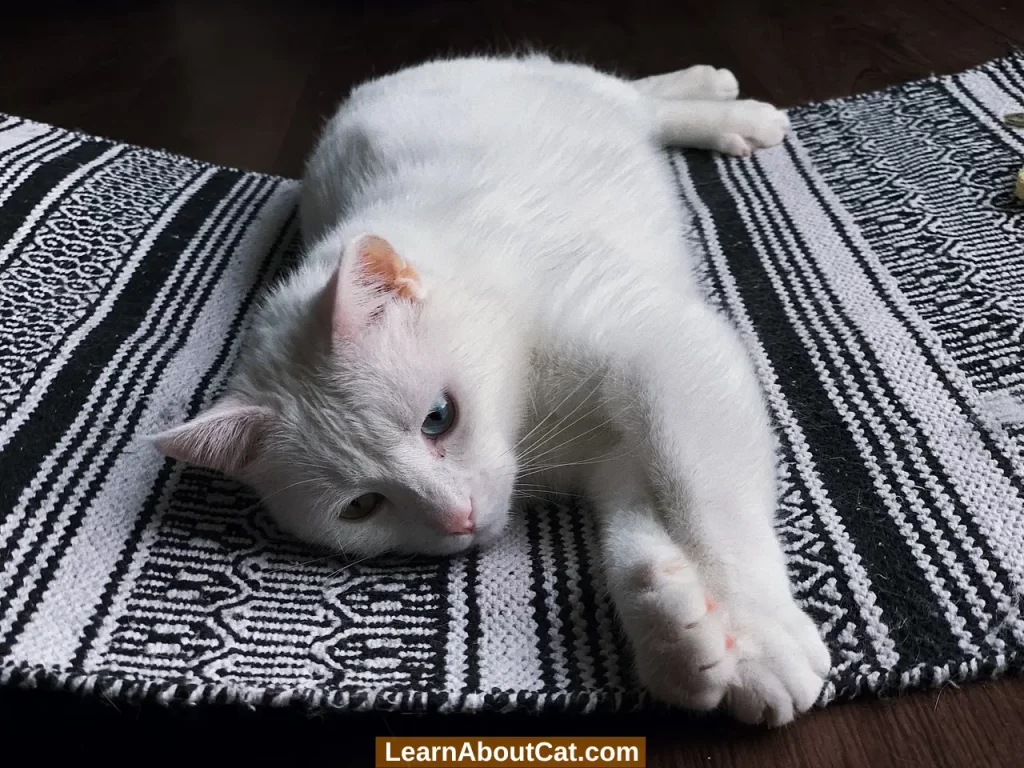
Normal Cat Behavior
Being sluggish is not necessarily a concern for cats because they frequently sleep a lot throughout the day.
The fact that cats are playful and lively aside, they also require a certain amount of rest and sleep if they are going to stay healthy. Adult cats can sleep up to 16 hours a day, while kittens may sleep even more. Aging can occasionally cause cats to become lethargic.
It is essential to observe your cat’s normal behavior and routine to identify any changes that may indicate a problem.
Check Out: Cat Lethargic 3 Days After Spay: Is It Normal? Things Cat Owners Should Know
Why Is My Cat Suddenly Lethargic and Weak?
Lethargy is a symptom of many different ailments; some are minor and don’t need much from you, while others are serious and may be deadly.
This section is broken into three subsections:
- Common mild challenges.
- Frequent serious conditions.
- Rarer serious conditions.

1. Common Mild Challenges
This frequently happens together with other signs of disease. Several of the most plausible reasons are listed below, along with their typical clinical symptoms:
- Parasite Infection: A parasite called worms can infect your cat’s intestines and slow them down. They are fairly common in kittens since they can be acquired through mother’s milk. Actually, the primary factor for kittens’ sudden lethargy is worm infestations. Your cat could have worms if it isn’t eating much but else seems healthy.
- Arthritis: Cats who are old or fat are more prone to developing arthritis. Cats find shifting to be extremely uncomfortable, which deters them from moving and increases their lethargy.
- Respiratory Infections: Common respiratory infections in cats can cause sudden sluggishness and lethargy. Here, viruses or bacteria can enter the upper respiratory tract and make a person feel contagious. If a cat is sleeping excessively, sneezing, coughing, or has discharge coming from its nose, an infection can be present.
2. Typical Serious Illnesses
In cats, lethargy is a symptom of several more serious yet common disorders. These diseases have a higher risk of long-term damage. If you think any of the following apply, schedule an urgent appointment with your veterinarian right away:
- Diabetes: If your cat is unable to properly control its blood sugar levels, it may have diabetes. Weakness and lethargy occur from the diet’s inefficient energy absorption. Additionally, it increases thirst and urination. An older cat that isn’t eating, which is increasingly common in senior cats, is another frequent sign.
- Dehydration: Dehydration can cause lethargy and weakness in cats. It can occur due to various reasons, such as not drinking enough water, vomiting, diarrhea, or excessive urination. A dehydrated cat may also have dry gums, sunken eyes, and skin that is slow to snap back into place when pinched.
- Nutritional Deficiencies: Nutritional deficiencies can also cause lethargy and weakness in cats. If your cat is not getting the necessary nutrients from their diet, it may become weak and lethargic.
- Obesity: Obesity can cause lethargy and weakness in cats, as carrying extra weight puts a strain on the body. Obese cats may also have difficulty moving around and may have trouble breathing.
- Viral diseases: Extremely weak and sluggish symptoms are brought on by serious viral infections, such as feline leukemia virus (FeLV) and feline immunodeficiency virus (FIV). Both of these conditions are quite harmful. FIV-positive cats typically have a life expectancy of five years after diagnosis, but FeLV-positive cats should typically be put to death.
- Urinary Tract Infections(UTI): If your cat uses the litter box repeatedly but nothing happens, it could have a UTI. Watch out for your cat urinating a lot, using the toilet outside of the designated area, or passing blood in their urine.
- Anaemia: Anemia occurs when a cat has a low number of red blood cells, which can cause lethargy and weakness. When your cat has anaemia, it has trouble getting enough oxygen to the parts of the body that need it. As a result, their muscles tire more rapidly, which might lead a cat to become suddenly lethargic and weak. Anemia can result from blood loss, nutritional deficiencies, or underlying health conditions like kidney disease.
- Heartworm: Heartworm is a distinct form of parasitic worm infection that can be more dangerous than the ones previously discussed, these worms can reach a length of one foot. Other common clinical signs include weight loss, vomiting, diarrhoea, and respiratory issues in addition to weakness and lethargy.
- Abscesses: An abscess is a sick bulge under the skin that is filled with pus and bacteria. They usually develop from catfight bite wounds and serve as the body’s built-in defence against infection.
3. Rarer Serious Conditions
There are a few less common but significant illnesses that you should also be aware of since they require immediate medical attention. Here is a sign and symptoms:
- Heart Disease: Heart disease is a gradual condition that commonly goes undiagnosed in the beginning. As the sickness worsens, your cat will begin to feel tired because the heart is unable to pump enough blood and oxygen throughout the body (silent killer disease).
- Heatstroke: When cats grow hot and are unable to cool off, heatstroke can happen. At this point, their bodies become extremely heated and their heart and respiration rates become extremely high. Vomiting, wooziness, and wobbling are likely to occur along with drooling and salivation in an effort to cool off.
- Poisoning: Cats like exploring, and their paws might easily come into touch with a dangerous substance. If they eat this, they might poison themselves. Depending on the drug and quantity ingested, the degree of poisoning varies. However, the medicine frequently causes fatigue, lethargy, nausea, diarrhoea, respiratory issues, and even convulsions.
- Organ Failure: The signs of organ failure, which can damage the kidneys or liver, include lethargy and a lack of energy. In both cases, early action is crucial. Both liver and renal failure have similar clinical symptoms, such as nausea, vomiting, and weight loss. Jaundice or abdominal edema may also appear in cats with liver disease.
Also Read: Cat Not Eating or Drinking- How Long Can a Cat Survive?
What are Some of the Signs and Symptoms of Lethargy in Cats?
Indications of Lethargy in Cats
As a symptom in and of itself, lethargy is frequently recognised by:
For the most part
- Apathy for or response to the environment.
- Inadequate energy.
- Sleepiness or drowsiness.
Other symptoms that usually go along with and are related to the following causes of lethargy include:
- Putting on weight.
- Gain less weight.
- Diarrhoea
- Fever.
- Hiding – Some cats enjoy hiding Jaundice, increased urination or thirst, and vomiting.
- Difficulty breathing.
- Sleeping more than usual
- Lack of grooming
- Lack of drinking.
- Pain or suffering.
- Hair changes, such as thinning or a dull coating, and aggressive behaviour.
- A specific sickness or medical condition may also have distinct symptoms that are present.
What Should I Do if My Cat Seems Lethargic or Weak?
If your cat isn’t displaying any additional symptoms, refrain from calling your veterinarian before you ought to. Sometimes overeating or a little ailment, such as a hairball, causes lethargy. These are not really alarming and will go down shortly. Instead, if your cat is still lethargic and weak after 24 hours, consult your veterinarian.
On the other hand, contact your veterinarian as soon as possible if your cat also exhibits additional symptoms in addition to lethargy. For some of the more severe causes, such as poisoning, treatment is necessary as soon as possible. Whether you wait 24 hours to see if your cat gets better, it could not survive.

When to Schedule a Vet?
Lethargy in cats can’t hurt even though it’s not usually a reason to visit the vet. If your cat has been unresponsive for more than 24 hours, schedule a visit to rule out any more serious issues.
Additionally, be sure to mention any other symptoms your cat may have experienced over the course of those 24 hours to your veterinarian. Depending on the condition your cat has, the treatment and diagnosis will change. Your cat will likely be safer the sooner you talk with a veterinarian. The fact that many elderly cats get sluggish is not as significant because it happens frequently.
Diagnosis of Lethargy and Weakness in Cats
To diagnose the underlying cause of lethargy and weakness in cats, your veterinarian may conduct a physical examination, which includes checking your cat’s body temperature, heart rate, and respiratory rate. A doctor may also examine dry mouth and sunken eyes as symptoms of dehydration.
In addition to a physical examination, your veterinarian may also recommend blood tests, urine analysis, X-rays, or other diagnostic tests, depending on the suspected cause of your cat’s lethargy and weakness. For example, if your veterinarian suspects an infection, they may recommend a blood test or a culture to identify the type of infection and the appropriate treatment.
It is important to provide your veterinarian with as much information as possible about your cat’s symptoms and behavior, including any recent changes in their diet or environment. This can help your veterinarian make a more accurate diagnosis and develop an effective treatment plan.
Early diagnosis and treatment are crucial for the best outcome, so if you notice any signs of lethargy and weakness in your cat, it is important to contact your veterinarian as soon as possible.
Also Read: How Do Cats Act When They are Dying?
Treatment of Lethargy and Weakness in Cats
The treatment for lethargy and weakness in cats depends on the underlying cause of the symptoms. In some cases, home remedies such as hydration and rest may be sufficient to help your cat recover. Medical treatment, however, may be needed in other circumstances.
If your cat’s lethargy and weakness are caused by an infection, your veterinarian may prescribe antibiotics or other medications to treat the infection. The administration of intravenous fluids and medications may require hospitalization in some cases
If your cat is dehydrated, your veterinarian may administer fluids subcutaneously or intravenously. This can help rehydrate your cat and improve their energy levels. Nutritional deficiencies can be addressed through dietary changes and supplements.
If your cat’s lethargy and weakness are caused by a chronic condition such as kidney disease, diabetes, or cancer, your veterinarian may recommend ongoing treatment or management of the underlying condition.
If your cat has been poisoned, your veterinarian will take immediate action to flush the toxins from their system and provide supportive care.
In addition to medical treatment, it is important to provide your cat with a comfortable and stress-free environment to aid in its recovery. This may include providing a quiet place to rest, a comfortable bed, and access to fresh water and food.
It is important to work closely with your veterinarian to determine the underlying cause of your cat’s lethargy and weakness and to develop an appropriate treatment plan. With proper treatment and care, many cats can recover from lethargy and weakness and regain their normal energy levels.
Preventing Lethargy and Weakness in Cats: Home Remedies
Preventing lethargy and weakness in cats involves providing them with a healthy and balanced diet, regular exercise, and a stress-free environment. Here are some tips to help prevent lethargy and weakness in cats:

- Provide a balanced diet: Ensure your cat’s diet is rich in nutrients and protein to maintain their health and energy levels. Avoid overfeeding or feeding your cat a diet that is high in carbohydrates, which can lead to weight gain and lethargy.
- Regular exercise: Regular play and exercise can help keep your cat active and prevent weight gain, which can lead to lethargy and weakness. Engage your cat in interactive play sessions or provide them with toys to play with.
- Hydration: Ensure your cat has access to clean and fresh water at all times to prevent dehydration, which can lead to lethargy and weakness.
- Stress-free environment: Provide your cat with a safe and comfortable environment that is free from stressors. This can include providing them with a quiet place to rest, a comfortable bed, and access to a litter box that is cleaned regularly.
- Monitor your cat’s behavior, including their appetite and bathroom habits, and report any changes to your veterinarian.
- Regular veterinary check-ups: Regular check-ups can help detect any underlying health problems early on and ensure your cat is up to date on all necessary vaccinations and preventative care.
You can promote your cat’s health and wellbeing by following these tips to prevent lethargy and weakness.
However, it is important to note that home remedies may not be effective for all cases of lethargy and weakness in cats. If your cat’s symptoms persist or worsen, it is crucial to contact your veterinarian for proper diagnosis and treatment.
Frequently Asked Questions
Can certain medications cause lethargy and weakness in cats?
Yes, some medications can cause lethargy and weakness in cats as a side effect. If you suspect your cat’s medications may be causing these symptoms, it’s important to speak with your veterinarian. The dosage may be adjusted or a different medication may be prescribed to alleviate the symptoms.
How can I tell if my cat is in pain?
Cats are masters at hiding their pain, but there are some signs you can look for. These include changes in appetite or behavior, vocalization, limping, and increased sensitivity or aggression when touched.
The best thing you can do for your cat is to seek veterinary care to determine the underlying problem and provide appropriate treatment if it appears to be in pain.
Can dental issues cause cat lethargy and weakness?
Yes, dental issues such as tooth decay or gum disease can cause these symptoms in cats. The best way to prevent these problems is to get regular dental cleanings and check-ups.
Can indoor air quality affect my cat’s energy levels?
Yes, poor indoor air quality can have an impact on your cat’s energy levels and overall health. Ensure that your home is well-ventilated and consider using air purifiers or plants that can help to improve air quality.
Final Thoughts!
A wide range of ailments, from minor respiratory infections to more serious conditions including poisoning, liver failure, or heart disease, can manifest as lethargy.
Once your cat is sick, further symptoms almost always start to show up. For instance, if your cat exhibits unusual levels of love or aggression, is lethargic and not eating, or is either gaining or losing weight, they are likely ill. There might be further signs that a disease is present.
If you’re unsure, contact your veterinarian. Keep an eye out for any further symptoms as these can help the veterinarian narrow down the diagnosis. Depending on the diagnosis, your veterinarian will suggest the best course of treatment for your pet.
Who is Isabella?
My name is Isabella, and I am a dedicated and knowledgeable cat enthusiast. With years of experience caring for cats and a deep love for felines, I made a mission to help other cat lovers navigate the challenges of cat ownership.

